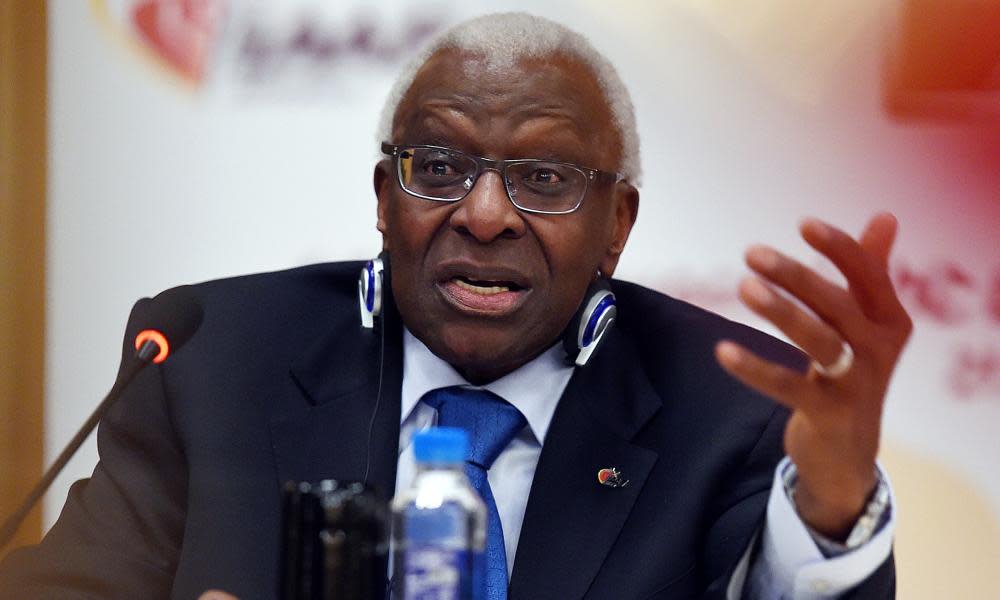Diacks' $55m of suspicious bank transfers linked to Tokyo Olympic bid

More than $55m was transferred in and out of suspicious bank accounts linked to Lamine Diack, the disgraced former head of global athletics, and his son, Papa Massata, according to a huge leak of secret financial documents.
Last week the Diacks were sent to prison for their part in the Russian doping scandal, in which 23 athletes paid around £3m in bribes to have their positive tests hidden. However, the two men are also being investigated by French prosecutors, who believe that the Tokyo Olympics was secured by millions of dollars in bribes laundered through the international banking system.
Related: How Lamine Diack's 16-year reign in charge of IAAF led to a jail term
Jean-François Bohnert, the head of France’s National Financial Prosecutor’s Office, confirmed to NBC News that the Diacks are a focus of the Tokyo bid case. “We see some mechanism of corruption associated with the Olympic Games,” he added. “Our place is … to trace and track when corruption is at stake.”
NBC said it had seen secret bank records obtained as part of the leaked FinCEN files which listed 112 transactions totalling more than $55m flowing in and out of bank accounts linked to the Diacks, including accounts tied to the Russian doping scandal.
It said that one of the documents traced the flow of $2.3m from a bank account belonging to the Tokyo Organising Committee at the time it was trying to secure the Olympics – which went to an account in Singapore controlled by a friend of Massata Diack’s around the time of the 2013 vote selecting Tokyo as the host city for the 2020 Games.
Hundreds of thousands of dollars were then sent from Singapore to accounts controlled by the Diacks in Senegal, according to the document, as well as to luxury car dealerships in Dubai, a jewellery dealer in the United Arab Emirates and a travel company based in Senegal.
The records, known as suspicious activity reports, or SARs, are filed by banks and other financial institutions to alert law enforcement to potentially illegal transactions, but they do not necessarily represent evidence of illegal activity, it added.
Haruyuki Takahashi, a former executive at the influential advertising agency Dentsu, has previously admitted giving Lamine Diack a Seiko watch and a Canon digital camera, both within allowable limits for gifts. However he told Japan’s Asahi Shimbun newspaper: “I have never paid any money to Diack. In regard to the bidding process for the Tokyo Games, I asked Diack and others for their cooperation and they all supported our cause with passion. And in the end everything fell neatly into place.”
Massata Diack denied any wrongdoing. “The French investigators are trying to put me and my father in the middle of these dealings,” he said. “But it is a lie. Let’s focus on the fundamentals. Where is the proof that we received all this money? To what account was it sent? The French justice system has to give us any evidence of that.”


